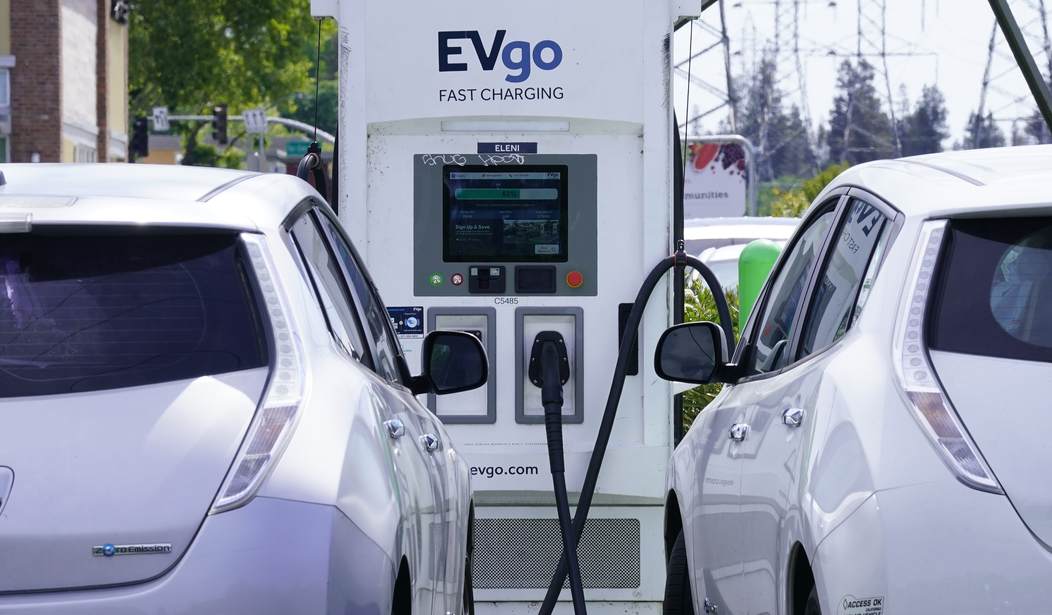California plans to ban the sale of gas-powered cars by 2035. In 2021, California required 12 percent of total new vehicle sales to be powered by batteries or hydrogen. By 2026, their goal is to reach 35 percent. By 2030, 68 percent. And in 2035, 100 percent powered by batteries or hydrogen.
Democrat-run California is banning gas-powered cars by 2035. The average cost of an electric vehicle is around $67,000, & the state’s electric grid already can’t keep the lights on. This will be an energy disaster. No wonder people keep leaving California! https://t.co/09svGLF3GP
— Congresswoman Debbie Lesko (@RepDLesko) August 25, 2022
President and CEO of the Alliance for Automotive Innovation, John Bozzella, said:
“Whether or not these requirements are realistic or achievable is directly linked to external factors like inflation, charging and fuel infrastructure, supply chains, labor, critical mineral availability and pricing, and the ongoing semiconductor shortage … These are complex, intertwined and global issues.”
The Alliance for Automotive Innovation represents major automakers, so Bozzella’s statement should be taken seriously, as he notes that the ban on gas-powered vehicles and mandating people to drive electric vehicles would be “extremely challenging” for the automakers to meet the demands.
According to the Independent Women’s Forum, banning gas-powered cars is likely unconstitutional. Mandy Gunasekara states:
“First, it could violate the Commerce Clause as it creates unreasonable burdens on interstate commerce, i.e. the manufacture and sale of vehicles. The Supreme Court has long held that the Commerce Clause has been a “self-executing limitation” on the power of States to enact laws which restrict interstate commerce. Second, under the Clean Air Act, California is required to receive a waiver from the U.S. Environmental Protection Agency in order to set its own, more stringent, emissions standards.”
Gunasekara also mentioned that the ban is unrealistic. She said:
“California has pushed electric vehicles for decades through a variety of tax breaks and subsidies, only 12.5% of drivers own an electric vehicle. This is a higher percentage of drivers compared to other states, but 78% of EV owners also own a second gas-powered vehicle to supplement their needs. Even with major advancements in EV technology, the reality that recharging batteries takes hours, while filling up gas tanks takes minutes, is a leading reason consumers continue to prefer gas-powered cars. EVs are also very expensive with an average cost of $54,000, most Americans cannot afford to pay luxury-level prices. This is especially the case with growing inflation.”
Not everybody wants to drive an electric vehicle; even if they could afford one, they might prefer gas-powered or hybrid. That should the individual’s choice to make.
Gunasekara explained in detail that the ban would do little for the environment, saying:
“While marketed as ‘zero emissions,’ electric vehicles have a series of environmental tradeoffs. They require 10 times the amount of minerals in their batteries compared to gas-powered engines and the majority of these minerals come from Chinese controlled mines in Africa that disregard environmental protections and regularly use child and forced labor. Further, more expensive cars mean Americans drive older vehicles longer. This trend can undercut the reach and effectiveness of safety and efficiency improvements that come with newer models.”
“Finally, this push towards electric vehicles will require more energy on the grids. California has already struggled to meet current demand and a ban on gas-powered vehicles will only make their grid problems worse.”
Not to mention Californians being able to drive to a neighboring state such as Nevada, buy the car of their choosing, and drive back to California. This ban on gas-powered vehicles is flawed, unrealistic, and likely unconstitutional.
This should go without saying, but the local, state, and federal governments should not tell the American people what they can and can’t drive. Instead of forcing their wants on Californians, they should negotiate with China, the world’s biggest carbon polluter.













Join the conversation as a VIP Member